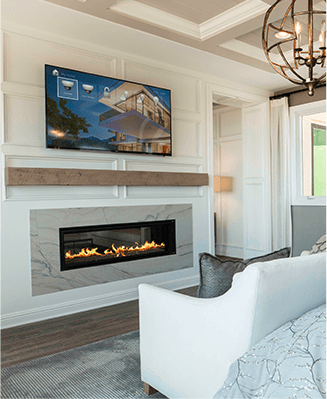Sunlit spaces are wonderful—until the glare washes out the picture. It can be really difficult to see some displays in bright rooms. The trick to balancing everything for the ideal display is a blend of matching display tech, placement, and room treatments so images hold contrast without looking harsh. Done right, you get daytime-ready screens that still look natural at night.
Display Choices for Bright Rooms
For display choices for bright rooms, start with panels that manage reflection and ambient light well. Look for anti-reflective coatings, higher native brightness, and solid contrast control. In rooms with broad windows, prioritize panels with effective glare reduction rather than chasing spec-sheet nits you’ll never fully use.
Placement and Angles Beat Raw Lumens
Before buying anything, map your sightlines. A small shift off the direct window axis can cut reflections dramatically. Keep screens perpendicular to primary light sources when possible, avoid facing expansive glass, and consider a slight tilt mount to deflect overhead glare. Often, the best “upgrade” is the right wall.
Taming the Room: Subtle Wins
Layer the space. Sheer shades for daytime diffusion, motorized blackout for movie time; matte paints over glossy; floor lamps that light surfaces, not the screen. Even a low-profile, dark media wall can reduce perceived glare and boost contrast without touching the display.
Day/Night Profiles That Stick
Set two picture presets you actually use. Day mode raises overall light output and adjusts gamma to protect shadow detail; Night mode dials brightness and color temperature back for comfort. Put both on a keypad or remote button so anyone can toggle in one tap.
When a Projector Still Works
Ultra-short-throw units paired with ambient-light-rejecting (ALR) screens can thrive in bright rooms if the light comes from above or the sides—less so if sunlight hits the screen directly. As with TVs, placement and window control decide success more than raw specs.































